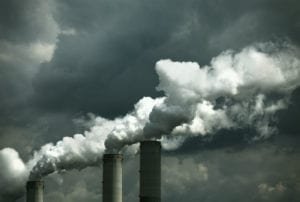Four children and two young adults from Portugal have filed an unprecedented climate change case with the European Court of Human Rights in Strasbourg.
They are asking the Court to hold 33 countries accountable for fuelling the climate crisis.
Hottest July in 90 years
The case, which is brought with the support of the Global Legal Action Network (GLAN), centres on the rising threat climate change poses to their lives and to their physical and mental wellbeing.
If successful, the 33 countries would be legally bound not only to ramp up emissions cuts, but also to tackle overseas contributions to climate change, including those of their multinational companies.
The filing of the case comes just after Portugal recorded its hottest July in 90 years. An expert report prepared for the case by Climate Analytics describes Portugal as a climate change ‘hotspot’, which is set to endure increasingly deadly heat extremes.
Four of the youth-applicants live in Leiria, one of the regions worst-hit by the devastating forest fires which killed over 120 people in 2017.
The remaining two applicants reside in Lisbon where, during a heatwave in August 2018, a new temperature record of 44ºC was set.
On the current path leading to about 3°C of warming, scientists have predicted that there will be a 30-fold increase in deaths from heatwaves in Western Europe by the period 2071-2100.
‘It terrifies me to know that the record-breaking heatwaves we have endured are only just the beginning. With so little time left to stop this, we must do everything we can to force governments to properly protect us. This is why I’m bringing this case.’
CATARINA MOTA
One of the young adults behind the case
Policies ‘too weak’ for Paris commitments
The complaint alleges that the governments being sued are categorically failing to enact the deep and urgent emissions cuts required to safeguard the futures of the youth-applicants.
Their lawyers cite the authoritative Climate Action Tracker which provides detailed ratings of countries’ emissions reduction policies.
Its ratings for the EU, the UK, Switzerland, Norway, Russia, Turkey and Ukraine – which cover the 33 countries being sued – show that their policies are too weak to meet the overall goal of the Paris Agreement.
 Play Video about This Rock Might Just Save The World
Play Video about This Rock Might Just Save The World Play Video about Play 2 hours of rock
Play Video about Play 2 hours of rock Play Video about Play 2 hours of brook
Play Video about Play 2 hours of brook Play Video about Play 2 hours of sheep
Play Video about Play 2 hours of sheep















































